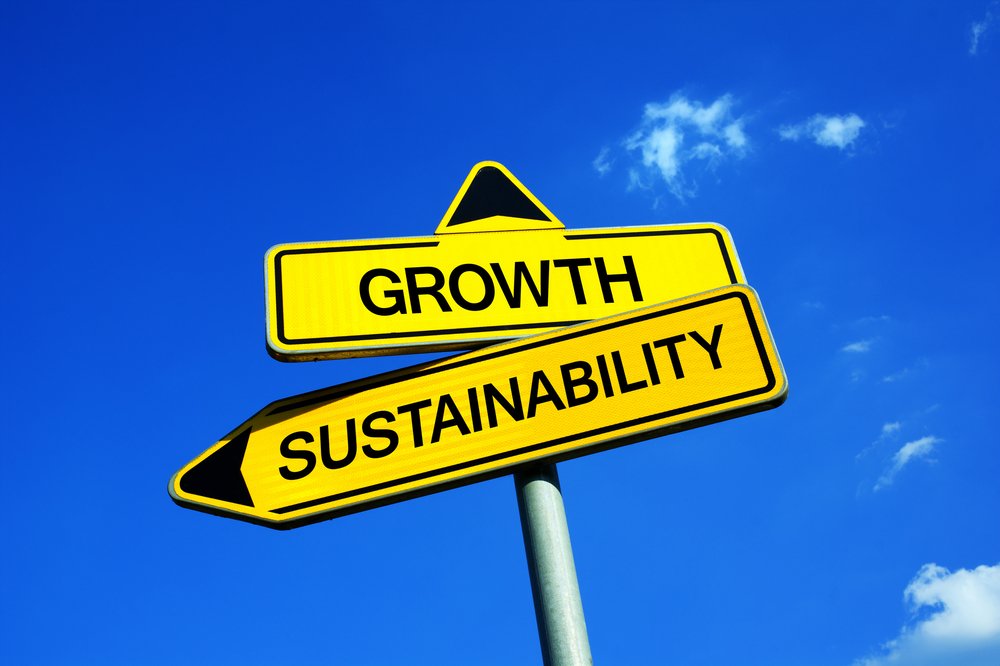
We live in an era defined by technological innovation and environmental consciousness. Businesses are facing pressure to adopt more sustainable manufacturing methods. In response, manufacturers are implementing digital transformation as a path to reach their sustainability goals. Many are shifting to ERP software solutions to help them digitize operations while advancing their sustainability objectives.
What Does Digital Transformation Mean?
Digital transformation encompasses a wide array of technological advancements and innovations, each aimed at optimizing business operations and unlocking new growth opportunities. From automation and data analytics to cloud computing and electronic tracking, these technologies empower manufacturers to make smarter decisions, improve productivity, and stay ahead of the competition.
Rodrigo Alves Kalypso EMEA manager commented in a recent Manufacturing Dive article on digitalization and sustainability. He stated, “I strongly believe that if you want your business to have longevity, you need to be thinking about both digital and sustainability, regardless of your company size.” Another contributor noted that it is common for manufacturing plants to have large areas to store paper which wastes resources. Reducing paper transactions would have a positive impact on sustainability in this instance.
For manufacturers, digital transformation brings about a paradigm shift in how products are designed, produced, and delivered to customers. Technologies such as Enterprise Resource Planning (ERP) software, screen-based manufacturing execution systems (MES), robotics, and advanced machinery, automate repetitive tasks and streamline production processes. This leads to greater efficiency and higher output. Meanwhile, data analytics and reporting tools provide valuable insights into production performance, allowing manufacturers to identify trends, anticipate demand, and optimize resource allocation.
Understanding Sustainable Manufacturing Principles

Reduce your carbon footprint and grow your company with digital transformation for sustainable manufacturing.
Sustainable manufacturing revolves around producing goods in a manner that minimizes negative environmental impacts, conserves energy and resources, and promotes social responsibility. It encompasses principles like reducing waste, conserving energy, using eco-friendly materials, and ensuring ethical labor practices throughout the supply chain.
At its core, sustainable manufacturing embodies the three pillars of sustainability: environmental, social, and economic.
- Environmental: Reduce energy consumption, minimize waste generation, and optimize resource utilization to mitigate environmental degradation.
- Social: Promotes ethical labor practices, fair working conditions, and community engagement throughout the supply chain.
- Economical: Drives long-term profitability through cost savings, risk mitigation, and brand reputation enhancements.
Sustainable and lean manufacturing practices share common goals, making them natural allies in the pursuit of operational excellence and environmental stewardship. Lean practices can facilitate the implementation of sustainable initiatives by fostering a culture of continuous improvement and employee engagement. By empowering employees to identify and address inefficiencies, lean manufacturing creates a foundation for sustainable change within organizations.
Identifying Unsustainable Manufacturing
Unfortunately, many traditional manufacturing practices are inherently unsustainable. From excessive energy consumption to pollution and waste generation, the industry has long grappled with environmental and social challenges. Common issues include:
1. Waste Generation
Manufacturing processes tend to generate large quantities of waste materials if left unchecked. This waste can take different forms. For example, using too much paper, stocking excess raw materials, production errors, and inefficient material use. Proper materials management, optimized processes, recycling, and digital production tracking aid in reducing a company’s environmental footprint for more sustainable operations.
2. Inefficient Processes
Non-digital manufacturing processes are inefficient and create bottlenecks that result in wasted resources and increased costs. Production methods fed by hand-generated orders can lead to mistakes, resulting in more product defects and rework. Additionally, outdated inventory management systems may result in overstocking or stockouts, leading to unnecessary resource consumption and disruptions in production.

Manual and paper-rich processes are unsustainable practices that can be eradicated with Frontier ERP’s automated and paperless technology.
3. Limited Visibility and Transparency
Dated manufacturing processes typically lack the visibility and transparency afforded by digital technologies. Without real-time data collection and analytics capabilities, manufacturers may struggle to monitor and optimize their operations effectively. This lack of visibility can lead to inefficiencies, missed opportunities for improvement, and difficulties in tracking and addressing sustainability issues throughout the supply chain.
Why Choose ERP Software for Digitalization and Sustainable Manufacturing
ERP systems play a pivotal role in catalyzing digital transformation. They serve as the backbone of modern manufacturing operations, promoting seamless coordination and collaboration across departments. ERPs drive better manufacturing sustainability in many ways.
1. Centralized Data, Analysis, & Reporting
- ERP systems consolidate data from different departments such as sales, product configuration, finance, HR, production, inventory, and logistics. They also facilitate collaboration across departments and stakeholders, fostering a culture of sustainability throughout the organization.
- Find inefficiencies, track resources, and identify areas for improvement with real-time data analytics and robust reporting features.
- ERPs enable predictive maintenance, helping prevent equipment breakdowns and reduce downtime, further enhancing efficiency and sustainability.
2. Optimize Resource Use
- With ERP systems, manufacturers can optimize resource utilization such as labor, raw materials, production scheduling, and automated equipment.
- Real-time monitoring capabilities enable better energy management, allowing companies to identify opportunities for optimization and implement energy-saving measures proactively.
- This optimization not only reduces costs but also contributes to sustainability by conserving natural resources and minimizing environmental impact.
3. Supply Chain Transparency
- ERP systems provide end-to-end visibility into the supply chain. This allows manufacturers to track the origin and lifecycle of materials and components.
- Manufacturers can use transparency to evaluate suppliers’ impact on the environment and society. This helps them make ethical and sustainable sourcing decisions.
- By promoting transparency and accountability across the supply chain, manufacturers can contribute to the adoption of sustainable practices and responsible sourcing initiatives.
4. Process Automation and Efficiency
- ERP systems with built-in CPQ tools automate routine quote and order tasks and streamline processes. This removes the risk of manual errors and production mistakes while employing sound processes that minimize wasted labor hours.
- Automation reduces the need for paper-based documentation, leading to paperless operations and reducing the environmental footprint associated with paper usage and waste.
- Automated workflows such as inventory management, production scheduling, and order fulfillment, lead to higher efficiency and productivity while minimizing resource consumption and waste generation.
5. Data-Driven Decision Making

Digital transformation with Frontier ERP can enable your company to generate robust reports for data-driven decision-making.
- ERP systems provide manufacturers with access to real-time data and analytics, empowering them to make data-driven decisions.
- By analyzing data on production performance, resource utilization, and environmental metrics, manufacturers can identify trends, anticipate challenges, and implement proactive measures to improve sustainability.
- Data-driven decision-making enables manufacturers to implement continual improvement strategies, reduce environmental impact, and achieve sustainability goals more effectively.
6. Compliance and Reporting
- ERP systems facilitate compliance with regulations and reporting requirements by providing tools for tracking and documenting environmental and governmental compliance.
- By streamlining adherence processes and reporting, ERP systems help manufacturers meet sustainability targets and enhance their reputation as socially responsible organizations.
Frontier ERP
Frontier ERP is an advanced ERP software designed to streamline and optimize business operations for discrete and make-to-order manufacturers. With its central configurator, Frontier ERP equipped with CPQ capabilities empowers companies to operate more intelligently. With Frontier, you receive:
In short, Frontier ERP is the perfect choice to help your company maximize sustainable manufacturing practices and operational excellence while minimizing your company’s environmental impact.
Conclusion
As businesses navigate the demands of an increasingly technological and environmentally conscious world, the imperative to adopt more sustainable manufacturing methods has never been clearer. In response to this pressing need, manufacturers are turning to digital transformation as a pathway to achieve their sustainability objectives. At the heart of this transformation lies ERP software, a powerful tool that empowers manufacturers to digitize their operations and advance sustainability goals.
By embracing digital transformation and prioritizing sustainability, manufacturers can not only be more competitive but also contribute to a more sustainable and prosperous future for generations to come.
Achieve your sustainable manufacturing goals and improve efficiency and profitability with ERP software by Frontier. Contact us to learn more about how we can help with your digital transformation strategy.



